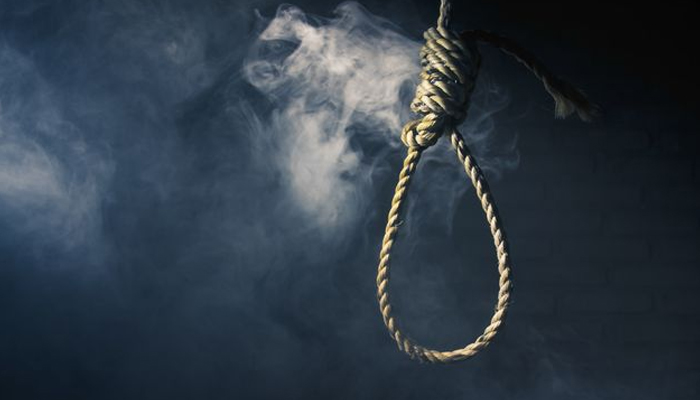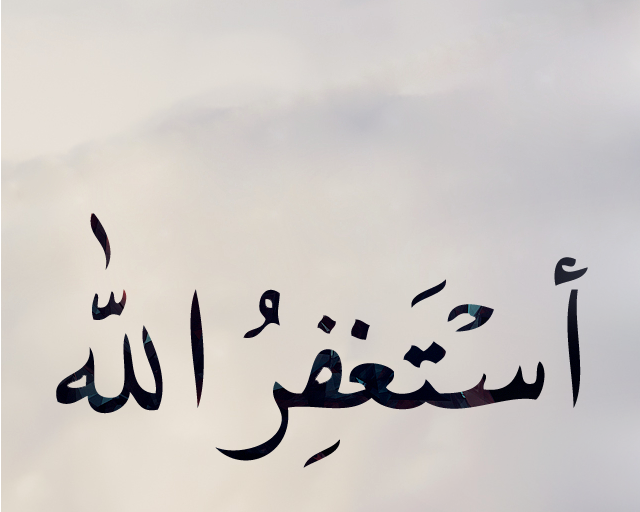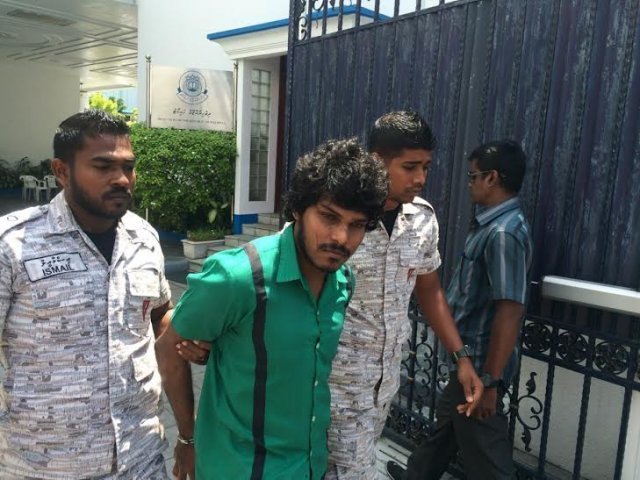Death by popular demand

by Mushfique Mohamed
The death penalty breeds injustice. It is most often imposed on the persecuted or the underprivileged. As the civilised majority increases its commitments to abolish it, some countries have spiked up executions. This includes states that have resumed the death penalty after discontinuing long-standing moratoriums. Apart from far-reaching authoritarianism, there doesn’t seem to be a common thread linking these countries together.
What are the factors propelling a minority of the world’s countries to resume capital punishment and proliferate executions? Is the motivation behind implementation of the death penalty really a matter of public safety? Or is it motivated by the religious duty of leaders, as it is zealously claimed by politicians in Islamic countries?
In 2015 half of all death sentences were carried out in Asia. Excluding China, almost all executions were carried out in Muslim-majority countries — Iran, Pakistan, and Saudi Arabia. On the other side of the death penalty discourse, 145 countries—74% of the world—joined the list of countries that are either abolitionist in practice or law. Despite the repeated fact: ‘there is no cogent evidence to show that the death penalty is a more effective detriment to crime than long-term imprisonment’, people from various backgrounds casually support it. The only difference is that most people in the developed world would not say it out loud at the risk of not being taken seriously.
Arguments that favour the death penalty wouldn’t stand in any informed discussion on the subject. The possibilities of wrongful convictions, botched executions, severe mental illnesses of defendants, or mitigating factors that could disprove guilt after sentencing are plausible enough to fully reject the idea of State sanctioned death as a punishment.
Religious vigilantism has killed yet another open-minded and humorous pioneer of blogging and political satire in the Maldives, Yameen Rasheed was brutally stabbed 34 times in the stairwell of his home. The Government’s narrative has not been one of condemning all forms of violence and hate. The official party line is: ‘be careful of your words, it could get you killed’, while the list of unsolved political violence continues to guarantee impunity for the usual suspects.
Populism on the rise
The Islamist death penalty rhetoric that was at the tip of Maldives’ president Abdullah Yameen’s tongue at the beginning of his presidency fizzled out late last year. It didn’t even take 24 hours for the Government to capitalise on the slain blogger’s shocking death. At a time when Rasheed’s family and friends were forced to feel a horrific sense of déjà vu over his friend Ahmed Rilwan’s forced disappearance in August 2014, President Yameen callously justified the death penalty through the murder of one of its most vocal critics. Stating in no uncertain terms that the President would issue death warrants within “two-to-three months”.
At home he’s the Trump-esque, triumphantly chauvinistic president who ‘has guts’. According to President Yameen, he is ready to start executions, not because he ‘wants to’, but for the ‘betterment of Maldivian society’. We, as Maldivians, are to feel grateful that we have a president who is incongruous with the times. It’s his assertion that executions are to resume in the Maldives because he is in touch with what the people want. In terms of public support for capital punishment, he may not be far off the mark.
But, to what extent is this thirst for blood manufactured? Is the call for the death penalty really following judicial precedents, or is it a sign of a justice system that revolves around the whims of political leaders?
In 2013 Pakistan reversed its moratorium on the death penalty for convicted terrorists. The following year the Maldivian government did the same for murder convicts. In many Muslim-majority countries, violent groups are already taking the law into their own hands. Whether it’s vigilante groups in Bangladesh hacking secularists to death, or radicalised gangs in the Maldives policing religiosity. In these South Asian countries there is a huge conflation of ‘secularism’ with not just atheism, but antitheism too. Why are these countries increasingly re-interpreting Islam in a way that promotes medieval practices over positivist Islamic jurisprudence?
In Urdu, Dhivehi, Bengali and other South Asian languages, Islamists explain—online or through religious literature, radio and television—how harsh punishments are endorsed under religious discourse. Most of its members are not your average Muslims but usually tend to be ‘born-again Muslims’ or the newly converted. There are websites solely dedicated to naming and shaming those that actively counter Salafi-Jihadism. The dirty work is then left to radicalised violent criminals who seek repentance for their delinquent past through violence against those that enervate their ‘holy’ death-cult ideology.
Although Maldives’ moratorium on the death penalty was only lifted for murder, the penal code prescribes death for blasphemy. Fundamentalist ‘Islamic scholars’ are already calling for the beheading of Maldivian secularists. By resuming public torture as a punishment, South Asian governments like Yameen’s are either attempting to get a handle on these religiously extreme violent groups, or doing their very best to boost their Islamist credentials. Given the moderate, culturally synchretic, and state-controlled Maldivian Islam in the past, majority of Maldivians today are convinced that Salafist Islam is the “true” version of Islam. Therefore the religious nationalism in these countries are becoming equally intolerant and insular. What are the global forces that promote regressive punishments over rehabilitation or life imprisonment?
The resumption of the death penalty in the Maldives coincides with increasing cultural, religious, economic and military ties with Saudi Arabia. While Pakistan has Iran to offset over-reliance on Saudi Arabia, it is a different story in the Maldives where the change from democratic transition to authoritarian reversal is in full swing. It might be convenient to point out that money from the oil-rich Arabian Peninsular is circulating all over the world. However, the hegemonic effects it can have on a small developing country differ greatly.
Manufacturing support
Soaring crime rates have created a public that’s willing to accept anything as the ‘right’ solution. Feeding off a panicked public, the currently embattled Maldivian president is ready to implement the death penalty for the first time since 1953. Ineffective governments use the death penalty to give the public the appearance of justice being served, although our judiciary ‘regularly dispenses injustice’.
Increase in violent crime is a result of sudden frenetic development that has interrupted the slow-paced and unpretentious island life but failed to meaningfully mobilise the youth with opportunities. In Maldives, it’s also a sign of increasing links between criminal gangs, politicians, and police that protect them. This new reality of life in urbanized islands was effectively used to convince the public that killing to stop killing is the only solution.
The idea that the ‘authentic’ version of Islam is strict and vengeful has been implanted in young minds through the education system. The Ministry of Islamic Affairs and its tacit support to those religious scholars that either call to or incite violence against liberals formalize these ideas. The old non-violent Maldivian way of life has been buried – violence is our culture now, and it’s suggested that we need more violence to revive our peaceful way of life.
Old habits
The death penalty exposes historic flaws in our justice systems. Politicised police forces in South Asia rely heavily on forced confessions to prevent public disillusionment of policing. Reports of a confession can also give the impression there’s very little debate over guilt of suspects.
There was virtually no violent crime in the Maldives until the 1990s, before urbanisation stunned Malé and facilitated the emergence of criminal gangs. Things couldn’t be more different today. We know that even for a small country our judicial system is plagued with a backlog of cases and in completely unfamiliar territory. It is easy to bend rules and eliminate rivals through rushed trials. For instance, Pakistan regularly abuses anti-terror laws and uses kangaroo courts to suspend fundamental rights and convict defendants. Our laws are designed to be open-ended and vague – the bigger the fishing net, the bigger the catch. These flimsy legal definitions and forever-morphing parameters of the law can be further widened through abuse of judicial discretion. Our justice systems refuse to abide by human rights and values of democracy.
Such populist South Asian leaders can count on contrived investigations to secure themselves and their allies. Any lines of inquiry that incriminates politicians or business tycoons go cold. An accomplice, usually a young offender belonging to a gang, is sacrificed to appease the public’s call for justice. The big kahunas that fund or plan such atrocities are never implicated during investigations or criminal proceedings. As long as a delinquent takes the fall, politicians or leaders of criminal syndicates evade due course of the law.
Before the Salafi-Jihadist propaganda that followed the Indian Ocean tsunami, religious radicalism and fundamentalism were at the fringes of Maldivian society. Now, it’s mainstream to the point where those who don’t adopt Salafist views are seen as lesser Muslims co-opted by Western influence. These new threats create new forms of desperation. While stepping up sharia rhetoric, the government is ignoring how this will affect Maldivians in the long-term. And why not, when it’s an efficient cover for the executive’s incompetence? It diverts the public’s attention to narratives of ‘lack of faith’ equal to ‘deteriorating social fabric’ while more pressing issues like grand corruption, climate change, and political violence become incoherent background noise.
Not in our name
In reality, Islamic countries implementing the death penalty don’t seek justice. Instead they use quick fixes that pull the wool over the public’s collective eyes. State sanctioned killing is a dramatic diversion from an ineffective criminal justice system; it provides a spectacle—medieval, yes—but satisfying to Islamist publics of today. It is also a useful tool for regressive regimes seeking to hide deeply embedded incompetency in policing and administering justice. In most South Asian countries, it is a misguided coping mechanism for asphyxiated criminal justice systems.
What about open democracies that execute convicts? The US is the only G7 country that still carries out executions. In 1982, Texas became the first jurisdiction to use lethal injection for its executions. This is supposedly the humane way for a state to kill convicts. Everyone knows that violent crime still takes place in Texas, and the prospect of a lethal injection doesn’t deter most violent criminals. Such perpetrators are often mentally ill and seek publicity for their crimes. In recent years many American anti-death penalty campaigners have observed ‘an all-time low’ in death sentences and executions. Despite this, many in the developing world point to the US in response to accusations of death penalty being anti-democratic by nature. We still glorify capital punishment for our superficial and selfish satisfaction even though judiciaries are ridden with disrepute. We believe that seeing the government essentially kill killers, makes us safer in our homes, in our communities.
The death penalty satisfies some sort of voyeuristic revenge complex we might have as humans, but it has very little to do with the murder victims’ family and friends, or the need to establish justice for their lost loved ones. Murder cases can drag on for years, exacerbating the victims’ families’ trauma. At times, calls for death cloud their calls for reprieve. It is unusual that we as the public seek retaliation for crimes from which we haven’t suffered as a consequence.
It doesn’t make us empathetic to appropriate the feelings of the victim’s family and endorse our corrupt governments to kill criminals, when our views are mostly based on incipient media reports; or conjecture arising from it. It makes us a society that is starved for justice to the point where we ignore systematic judicial corruption, and are willing to be satisfied with even the false veneer of justice. A killing spree is a killing spree, whether it’s state-sanctioned or the actions of a fanatic.
About the author: Mushfique Mohamed is a human rights lawyer. He has an LLB (Hons) Law and MSc(Econs) in Postcolonial Politics from Aberystwyth University.
Image: Zee News

